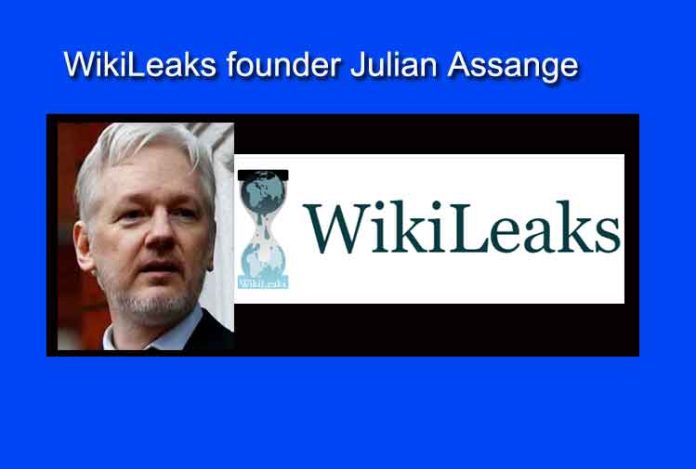The long-standing legal drama surrounding WikiLeaks founder Julian Assange has taken a significant turn. Assange, who has been in custody in Britain, is now free following an agreement with the United States. This development paves the way for his return to his homeland, Australia.
Assange’s Agreement with the US
Julian Assange, the 52-year-old Australian citizen, has reached an agreement with the US government to accept charges related to the unauthorized disclosure of military secrets. According to court documents filed in the Mariana Islands of the United States, Assange will plead guilty to a single charge of conspiracy to obtain and disseminate information pertinent to national defense. In exchange for his guilty plea, Assange demanded his release, effectively concluding a years-long legal battle.
Timeline of Assange’s Legal Ordeal
Assange’s legal troubles began in 2010 when the US government accused him of leaking classified documents related to the wars in Iraq and Afghanistan. He faced 17 charges of espionage and one charge of computer misuse for publishing these documents on the WikiLeaks website. To avoid extradition to the United States, Assange sought refuge in the Ecuadorian embassy in London, where he stayed for seven years. His asylum ended in 2019 when British authorities arrested him, leading to his incarceration in a British prison for the past five years.
Julian Assange: From Asylum to Incarceration
During his time in the Ecuadorian embassy, Assange lived in a state of limbo, unable to leave the embassy premises without risking arrest. The Ecuadorian government eventually revoked his asylum status, leading to his arrest by British police in April 2019. Since then, Assange has been held in Belmarsh Prison, a high-security facility in London, while fighting extradition to the United States.
Impact of the US Agreement on Assange’s Future
The agreement with the US marks a pivotal moment in Assange’s life. By pleading guilty to the conspiracy charge, Assange potentially avoids the more severe espionage charges that could have resulted in a much longer sentence. Instead, he faces up to 62 months in jail. Given that he has already spent approximately 60 months in British custody, his sentence is effectively served. This arrangement clears the way for Assange to return to Australia, where he can reunite with his family and supporters.
WikiLeaks and Assange’s Legacy
WikiLeaks, founded by Julian Assange in 2006, has been at the center of numerous high-profile leaks of classified information. The organization gained global attention with the release of the “Collateral Murder” video in 2010, which depicted US military personnel killing civilians in Baghdad. This was followed by the publication of a vast trove of US diplomatic cables and military documents, which sparked worldwide controversy and significantly impacted US foreign relations.
Assange’s Release: A Turning Point in the WikiLeaks Saga
WikiLeaks announced Assange’s release on Tuesday morning, British time. The news was met with mixed reactions globally. Supporters hailed it as a victory for press freedom and transparency, while critics maintained that Assange’s actions had jeopardized national security. The controversy surrounding WikiLeaks and Assange’s methods continues to provoke intense debate.
Assange’s Path to Freedom
Assange’s journey to freedom has been fraught with legal hurdles and international diplomacy. The agreement with the US was a critical development, allowing Assange to leave Britain and avoid the potentially severe penalties associated with the espionage charges. Assange is expected to arrive in the United States on Wednesday morning, local time, before proceeding to Australia.
Assange’s Imprisonment and Potential Sentence
Assange’s incarceration in Britain was marked by legal battles over his extradition to the United States. His lawyers argued that extradition would expose him to inhumane conditions and a potentially lengthy sentence. The agreement to plead guilty to a lesser charge effectively ends these proceedings. With the time already served in British custody, Assange’s legal team expects that he will not face additional imprisonment once he returns to Australia.
Reactions to Assange’s Release
Reactions to Assange’s release have been polarized. Human rights organizations and advocates for press freedom have celebrated the decision, viewing it as a triumph against governmental overreach and an affirmation of the importance of transparency. Conversely, some officials and commentators argue that Assange’s actions endangered lives and compromised national security, and believe he should face more stringent penalties.
Assange’s Future in Australia
Upon his return to Australia, Assange is likely to face a different kind of scrutiny. While he may be free from legal battles, his actions and the impact of WikiLeaks will continue to be subjects of intense public debate. Supporters in Australia have long campaigned for his release, and his return is expected to be met with significant media attention.
Julian Assange’s release from British jail marks a significant milestone in a saga that has captivated the world for over a decade. The agreement with the United States not only secures his freedom but also opens the door for his return to Australia. As Assange steps into this new chapter, the debate over his legacy and the implications of WikiLeaks’ revelations will undoubtedly continue. His story serves as a profound reminder of the complex interplay between national security, transparency, and the rights of individuals in the digital age.















